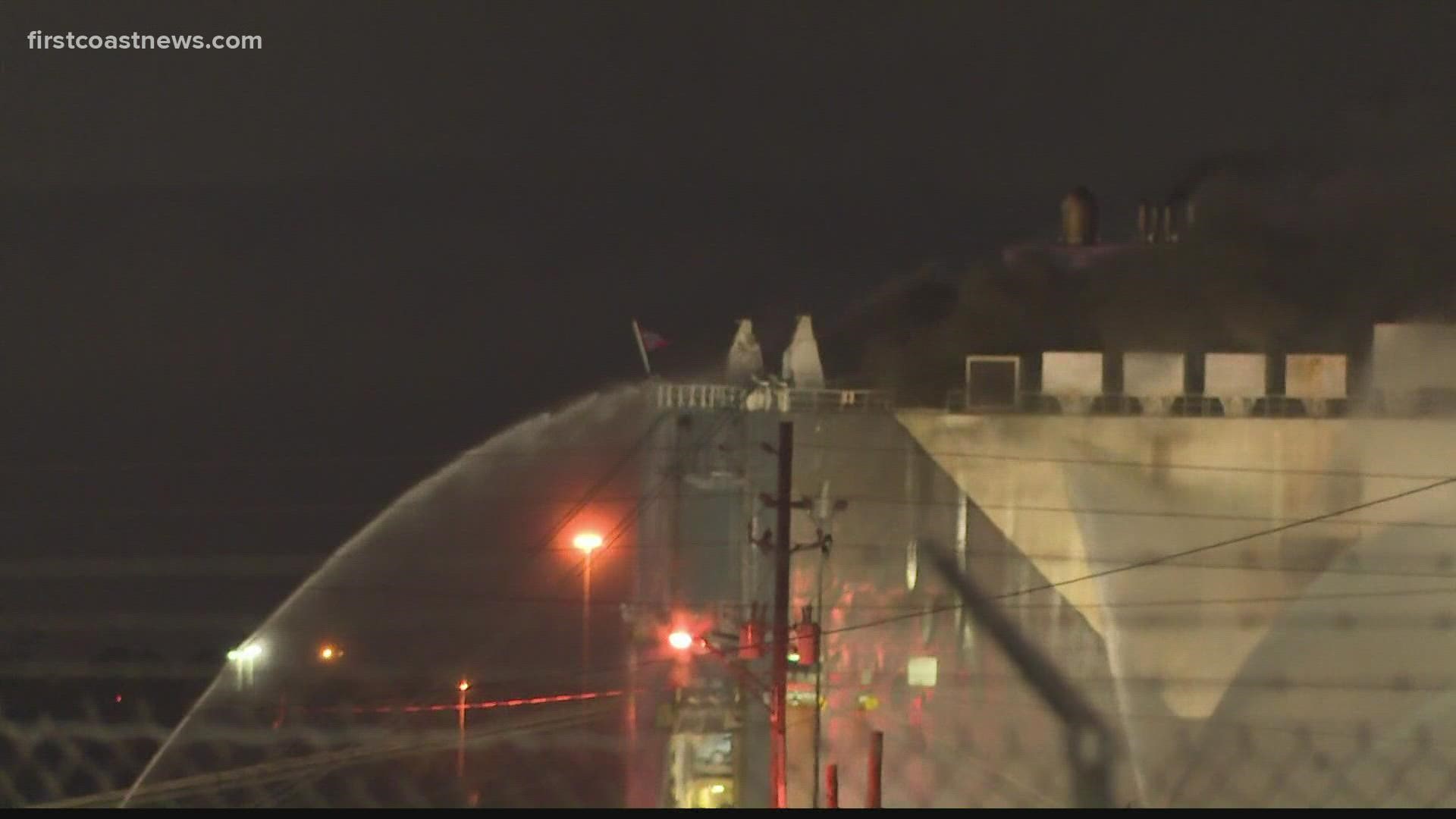JACKSONVILLE, Fla. — A National Transportation Safety Board report released Thursday says a failure to properly disconnect and secure vehicle batteries led to the 2020 fire aboard vehicle carrier Höegh Xiamen in Blount Island.
The June 4th fire resulted in $40 million worth of damages and sent nine Jacksonville firefighters to the hospital. No one died in the explosion but some fighters were severely injured. None of the vessel’s 21 crew members were injured during the incident.
It took firefighters more than a week to officially put the subsequent fire out.
The NTSB issued eight safety recommendations to federal regulators and the companies involved in the accident as a result of the investigation.
According to the report, the explosion happened because of a spark from a car battery on the ship. Additionally, the car batteries had not been disconnected and secured before the cargo ship left the dock.
During the investigation, officials found that the fire detection system had not been reactivated after they completed loading the ship, which lead to a delay in calling for help.
“The circumstances of this accident make clear that it is critical to ensure that the batteries of used vehicles are disconnected and properly secured during cargo loading operations,” the report said. “The NTSB believes it is imperative that operators of similar roll-on/roll-off vessels engaged in the transportation of used vehicles act to ensure that any personnel involved in loading operations—including vessel crews, stevedores, and longshoremen—be aware of the importance of disconnecting batteries on used vehicles.”
Officials found the following safety issues during the investigation.
- Training for and oversight of vehicle battery securement,
- Regulatory exceptions for used and damaged flammable liquid-powered vehicles,
- Fire detection system deactivation during cargo loading, and
- Effective emergency distress calls.
NTSB said it issued one recommendation each to the Pipeline and Hazardous Materials Safety Administration, U.S. Coast Guard, and the National Maritime Safety Association; two recommendations to Grimaldi Deep Sea; and three recommendations to Höegh Technical Management.
NTSB’s recommendations to the companies included improving oversight of vehicle loading as well as training of personnel involved in battery securement for used and damaged vehicles. The agency's recommendations to federal agencies involved improving regulations for vehicle carriers that transport used vehicles. NTSB’s recommendations to the ship's operator involved revising their procedures for the reactivation of fire detection systems and ensuring emergency contact information is immediately available for bridge teams.
The public docket for the investigation contains more than 750 pages of information, including interview transcripts, photographs and other investigative materials.
Click here to view the full accident report.

